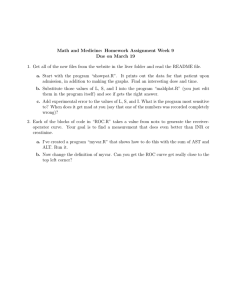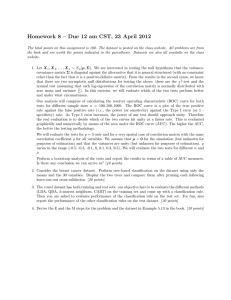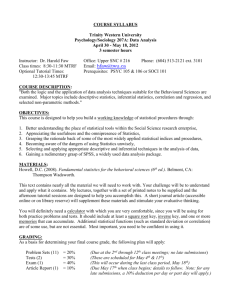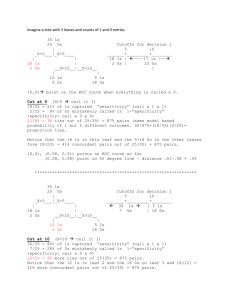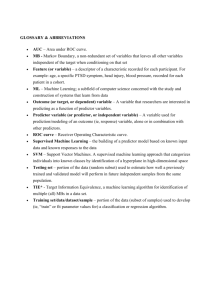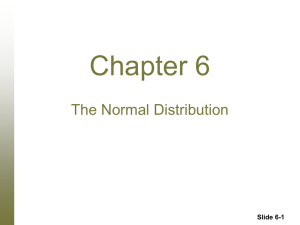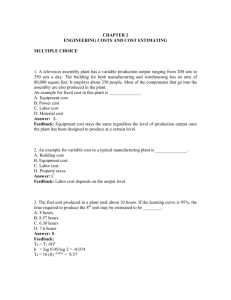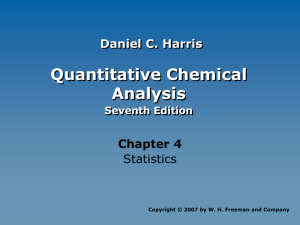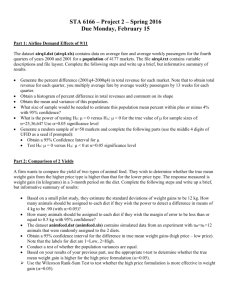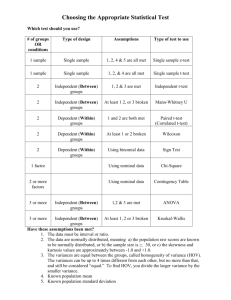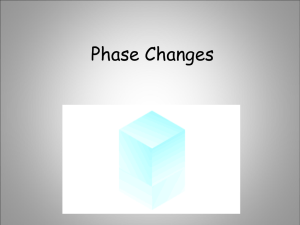Problem 1 – Learning from Labeled Examples You have a dataset
advertisement
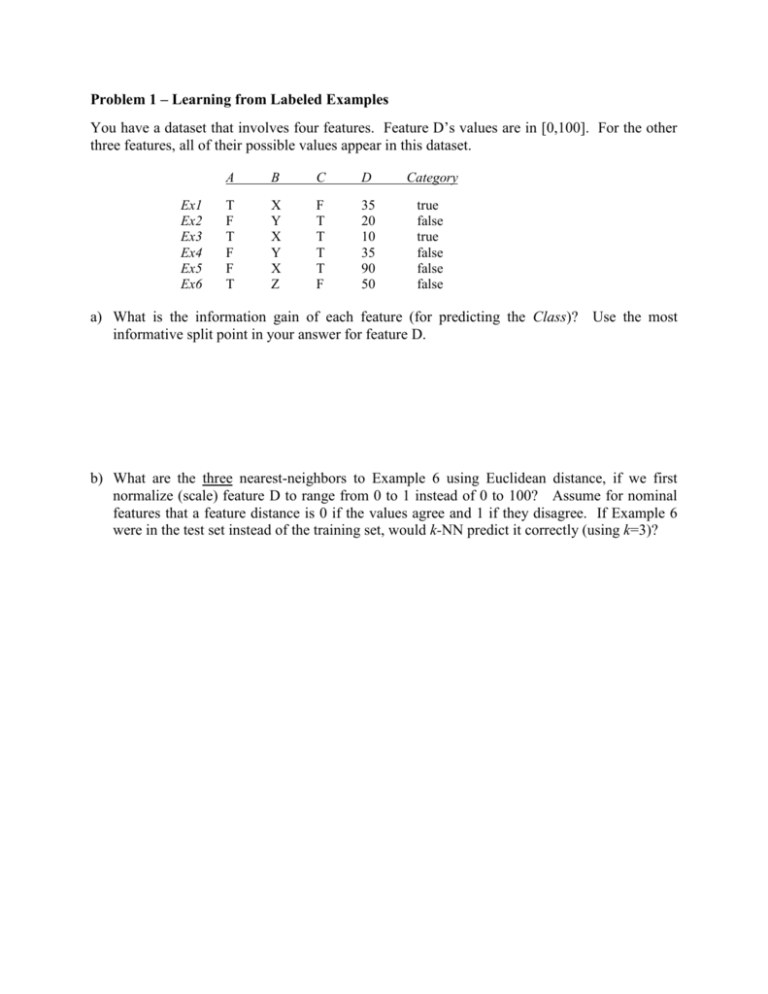
Problem 1 – Learning from Labeled Examples You have a dataset that involves four features. Feature D’s values are in [0,100]. For the other three features, all of their possible values appear in this dataset. Ex1 Ex2 Ex3 Ex4 Ex5 Ex6 A B C D Category T F T F F T X Y X Y X Z F T T T T F 35 20 10 35 90 50 true false true false false false a) What is the information gain of each feature (for predicting the Class)? Use the most informative split point in your answer for feature D. b) What are the three nearest-neighbors to Example 6 using Euclidean distance, if we first normalize (scale) feature D to range from 0 to 1 instead of 0 to 100? Assume for nominal features that a feature distance is 0 if the values agree and 1 if they disagree. If Example 6 were in the test set instead of the training set, would k-NN predict it correctly (using k=3)? Problem 2 – Experimental Methodology a) Assume two algorithms get the following test-set accuracies in a five-fold cross validation : Algo A: Algo B: 89 92 91 97 83 83 70 76 100 100 Using the appropriate version of the t-test, is the difference between A and B statistically significant at the 95% confidence level? (t0.95,3 = 3.18 t0.95,4 = 2.78 t0.95,5 = 2.57 for a two-sided test and t0.95,3 = 2.35 t0.95,4 = 2.13 t0.95,5 = 2.02 for a one-sided test) Show your work. You may want to check your result using the t-test in Excel. b) Assume you have trained a probabilistic model for a Boolean-valued task. For each of the test-set examples below, the second column gives the probability (as a percentage) that the model gives to the example being a positive example, while the third column lists the correct category. Example 6 3 2 7 8 5 4 1 Probability of Positive Correct Category 98 positive 97 positive 94 negative 93 positive 92 positive 45 negative 40 positive 15 negative Draw to the right of this table the ROC curve for this set of predictions. Be sure to label your axes. c) Which examples in the curve from part (b) above would not be on the convex hull of the ROC curve?
